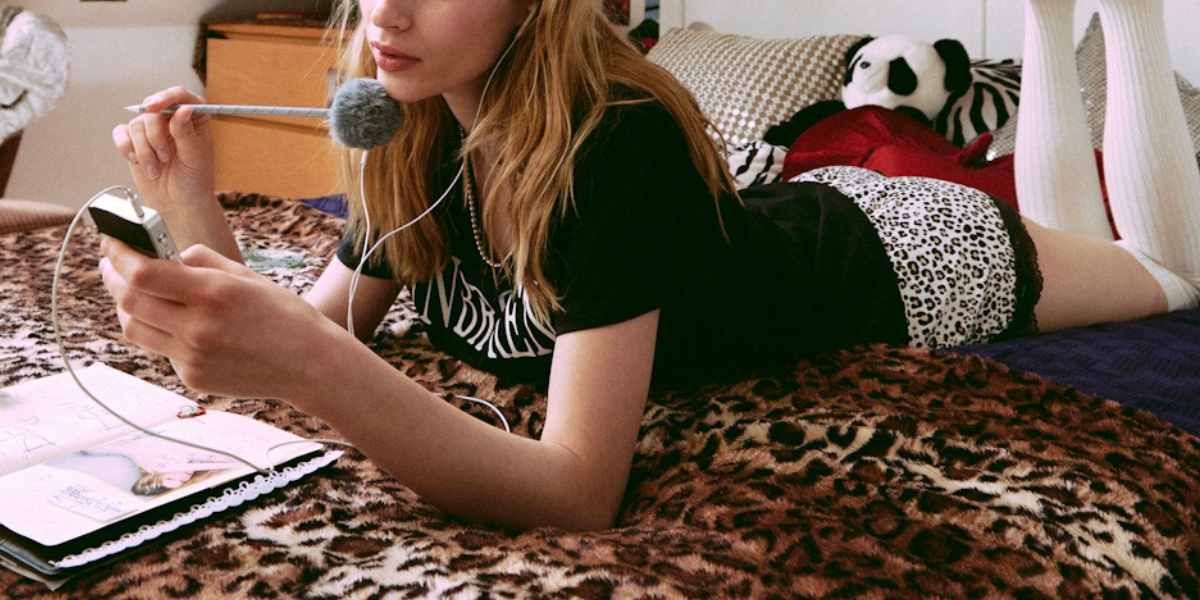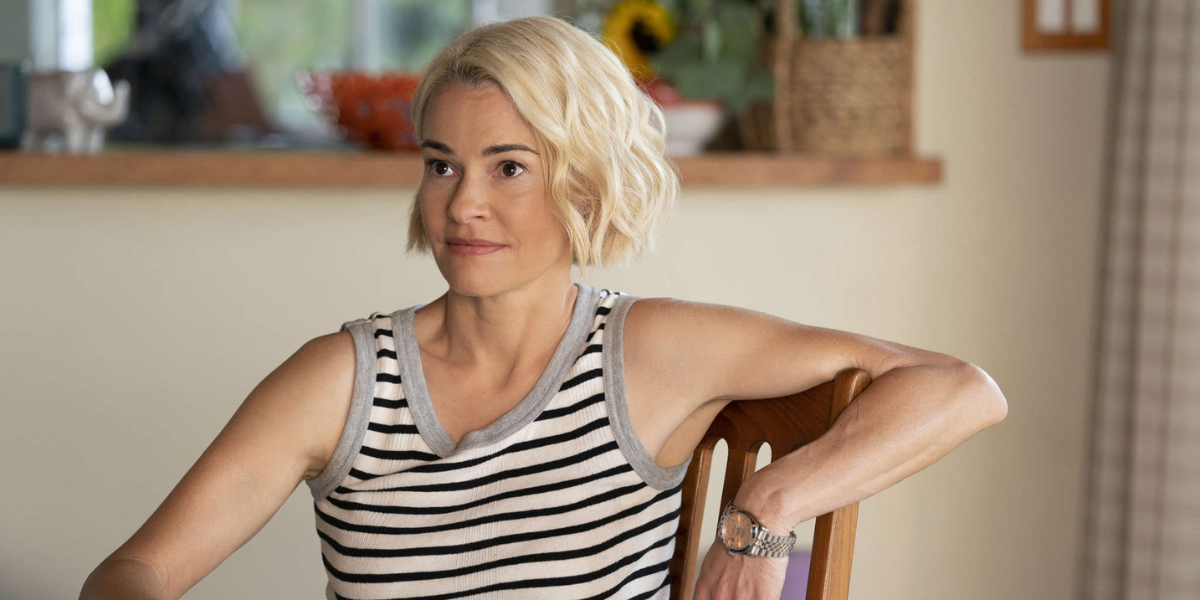Am I a lesbian? It’s a question queer women have been screaming into the void and/or pondering while lying in bed with their mediocre and/or very kind boyfriends for centuries. Now, they can simply type that question into their computer machine and at some point, almost certainly, they will land upon The Lesbian Masterdoc.
The 31-page booklet was introduced to the internet in January 2018 by 19-year-old blogger @cyberlesbian, who found the answer to “Am I a lesbian?” for herself and decided to spread the self-actualization. She initially shared “The Lesbian Masterdoc” on nascent queer platform tumblr, where it quietly went viral, earning over 32k notes as of this writing. It now also exists independently of the tumblr post in a PDF. The Masterdoc remains a hot topic for questioning maybe-queers on Tiktok and other social media.
In 2020, the previously anonymous author of the Lesbian Masterdoc, Angali Luiz, spoke to Vice Magazine about the project as part of their series on queer inventiveness and DIY Culture. “I realised I loved women when I was a teenager, but I never quite knew if my attraction for men was real or a social construct I took in as a facet of my identity,” she told Vice. “I started researching compulsory heterosexuality and found that many lesbians had the same experiences I did. I created the document as a tool of self-reflection for myself and others.”
Part of the document’s widespread resonance may be that it does not address the “coming out obstacles” that have dominated discourse for decades: potential familial/social rejection and religion. When I was young, stories about closeted-to-themselves people were focused exclusively on those two dynamics, leading me to develop a very convoluted barrier to my own self actualization. My logic went thusly: because I lived in a liberal town with a progressive family but didn’t feel comfortable coming out, that must be because I was not gay. THIS WAS INCORRECT LOGIC.
The Lesbian Masterdoc’s primary focus is the social and internal obstacles known as compulsory heterosexuality and heteronormativity and the internalized homophobia that comes with that. It addresses people who’ve struggled to fit their feelings about men and women into socially acceptable boxes. The term “compulsory heterosexuality” was popularized by a 1980 essay by Adrienne Rich, “Compulsory Heterosexuality and Lesbian Existence.” Unlike its source material, the Masterdoc is refreshingly trans inclusive, speaking to trans people sorting through gender and sexuality feelings at the same time, including “signs” specific to trans women and non-binary people. (e.g., “Knowing you’re attracted to women, but feeling weirdly guilty and uncomfortable trying to interact with them as a straight man, and only later realizing you’re actually a trans lesbian.”) The other deviation the Masterdoc takes from popular discourse is making space for people whose path to a lesbian identity is not “I was born this way” or “I’ve always known,” reminding readers that it’s okay if lesbianism is a choice, and not “always knowing” doesn’t mean you aren’t an actual lesbian.
The document certainly has its problems — there are several points made that don’t align with my understanding of the topic covered. But it’s generally a perceptive and compelling piece of writing.
Compulsory heterosexuality is the voice in my head that says I must really be het even when I’m in love with a woman. Compulsory heterosexuality is what forces lesbians to struggle through learning the difference between what you’ve been taught you want (being with men) and what you do want(being with women), which is why so many lesbians have dated men at some point.
Although the Lesbian Masterdoc seems geared towards folks who are straight or bisexual and think they might be lesbians, it has import for straight or bisexual women to confirm or discover their bisexuality, too — many of the sections here are relatable to any type of queer identification.
If you’ve perused the Lesbian Masterdoc and are looking for more resources and personal narratives that address its topics — compulsory heterosexuality, internalized homophobia, coming out later in life, reconciling past relationships with men with your present identity, the intersection of other identities and your sexuality — then have we got some stuff for you! (These readings are mostly focused on lesbian narratives because that’s the focus of the masterdoc, but there’s some bi and queer stuff in here too.)
On reconciling past authentic relationships with boys / sexuality changing over time / figuring out a little later in life:
Everything You Ever Wanted to Know About My Sexual Orientation And Were(n’t) Afraid To Ask: “I was scared, like maybe many of you are now, that in some unpredictable future I’d pick the wrong gender and then flee my husband/wife for another man/woman, leaving everybody’s soul shattered and, apparently, myself crying in a ravine wailing, “GOD! ‘QUEER’ WAS SUCH A COPOUT”!”
Our Willow, Ourselves: I know it’s popular to depict sexual orientation as something inherent and immutable – you’re born gay, or straight, or bisexual, and that’s what you’re stuck with forever – but I don’t think it’s that simple, at least not for everyone. Sometimes you meet the right person and suddenly everything is different. Sometimes you have choices, a multitude of paths you might explore, a plethora of relationships you might nurture or neglect.
Coming Out as An Amorphous Weirdo – “It wasn’t until I kissed the second girl that even my therapist at the time laughed at me and told me maybe it was time to accept that my sexuality was not as cut-and-dry as I’d always imagined.”
You Need Help: Coming Out In Your Mid/Late 20s: Trying to reconcile the person I thought I was for nearly 25 years with who I now realize myself to be has left me feeling like someone has taken one of those hand mixers to my insides.
Netflix Outed Me: I spent my pubescent years crushing after guys that wanted nothing to do with me (if they knew I existed at all) while going all Cruel Intentions on my girlfriends at sleepovers.
A+ Roundtable: Internalized Homophobia and Other Endearing Forms of Low-Key Self-Hatred – a roundtable featuring many people speaking on this topic!
I Didn’t Know How to Be Poor, Black, Biracial, AND Queer; So I Wasn’t: “I quieted the voice inside of me, convincing it that this was not a world in which it could survive. I had seen no examples of anyone like me, not in my life, not on tv, not in books, so rather than be the first of my kind, I decided not to exist.”
6 Bi+ People on Coming Into Their Bisexual Identity – a roundtable!
On coming out while in relationships with men:
How Do I Let Go of Feeling Guilty After Coming Out Late in Life? – I feel guilty for disrupting my parents and siblings’ lives with this bombshell and making them question their past behavior and feel bad. And I feel guilty for not allowing myself to live as myself for so many years. How can I let go of this old guilt and old sadness and open myself to new feelings and experiences?
How to Leave Your Husband (Because You’re a Lesbian) – Yes, I was miserable in my relationship(s), but I thought that everyone was miserable in their relationships. I’d been listening to women complain about their husbands or boyfriends — in real life and on television and in movies and magazines — for as long as I could remember.
You Need Help: You Fell in Love With a Girl and It’s Exploding Your Whole Life – Am I pushing her back into the closet because I can’t openly be with her yet, until this is final and then until I can get enough courage to tell my family and ex? Am I creating a problem that will damage her and me in the long run?
You Need Help: Where Do I Go From Here? – I recently started therapy and I am realizing a lot of things about myself including the fact that my sexual orientation is probably a lot further to the left of the spectrum than I realized and this may be a factor in my depression.
On Questioning Your “Label”
You Need Help: What’s My Label?: “Am I a repressed lesbian, or just a bored (and exhausted) bisexual?”
Lesbian Visibility Day Roundtable: Carrying History, Worshipping Women, F*cking Up the Patriarchy: a roundtable to give all of our lesbian writers the chance to talk about why they’ve chosen “lesbian” for themselves and what it means to them to move through the world with that label. We’d love to hear from you in the comments!
You Need Help: How Do I Know If I’m Bisexual or a Lesbian and Find Community?: I’m very clearly not straight, and I find I’m far more attracted to femmes and trans folx, and even to some cis women. I’m not often attracted to people who present as cis males, and the idea of sex with a man grosses me out at the moment. I’m also not at all interested in another relationship with a man. Where do I fall on the spectrum?
Labels: For Jelly Jars, For Lesbian and Bisexual People, Or For Both? (a roundtable with people of various orientations)
Feelings at the Intersection of Gender + Sexual Orientation
Everything is Subject to Change: “I think I was living in a world were my sexual orientation and identity were overshadowed by the hetero world I was surrounded by. There weren’t many places to have generative conversations around the expansive realm of queerness and all it encompasses. “
Mrs. Fletcher Wants Us All To Fuck: “When I finally started going through puberty – about two years after everyone else – I was overwhelmed with shame. It felt like my body would betray me at any minute. I realize now my fear of turning into a man was a natural part of my transness. But at the time I just connected it to immorality.”
When I Knew I Was a Boy – “When I went to college, I started to really struggle with my lack of a label that fit. I read Ellison’s Invisible Man and was pretty into stripping away the labels/expectations/identities that society and other people imposed on me and getting to my true core, and yet I was really lost and couldn’t quite get to that core.”
On Missing the Signs:
The 25 Gayest Things I Did When I Still Thought I Was Straight
Analyzing My Childhood Bedroom Posters As A Profoundly Gay Woman







